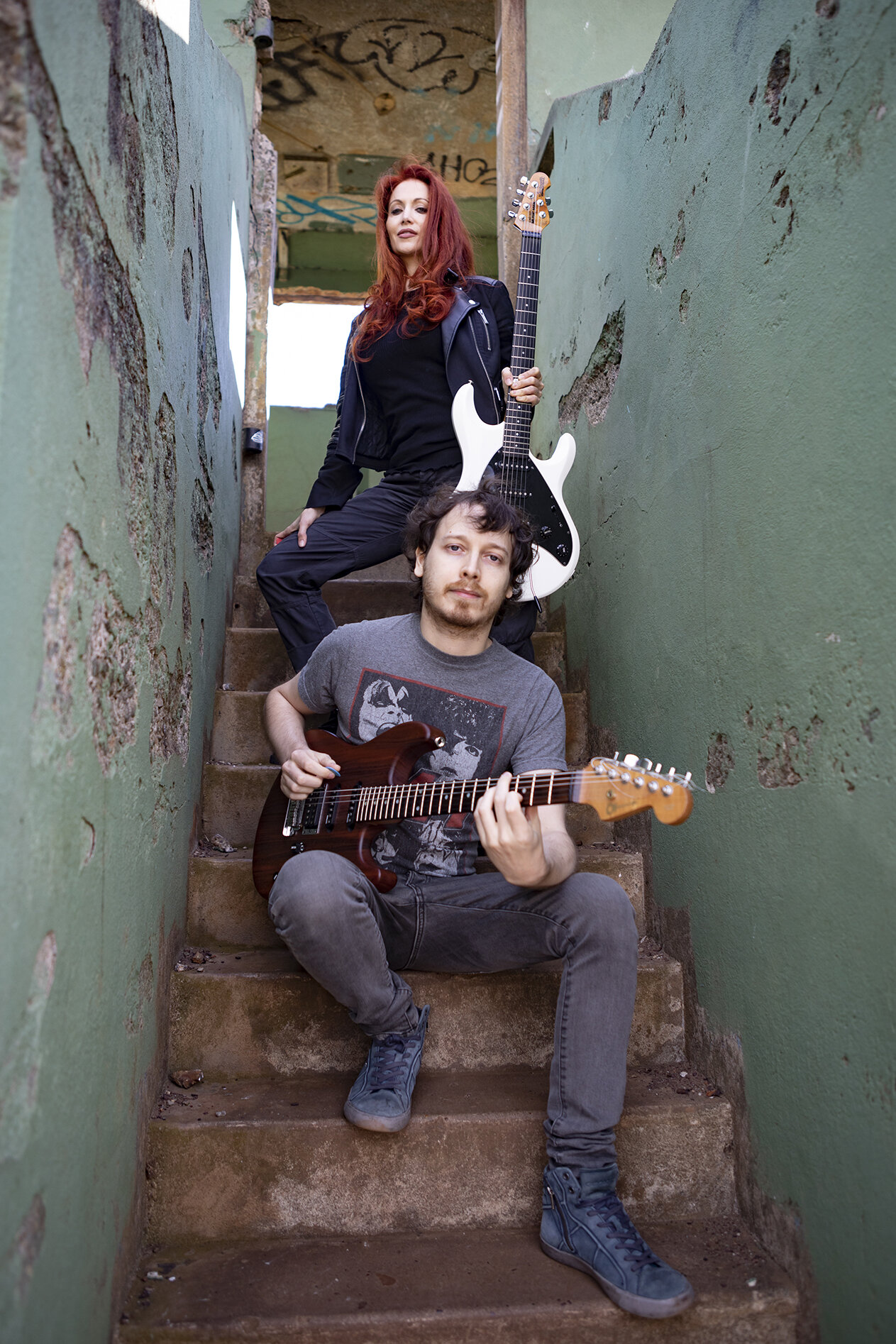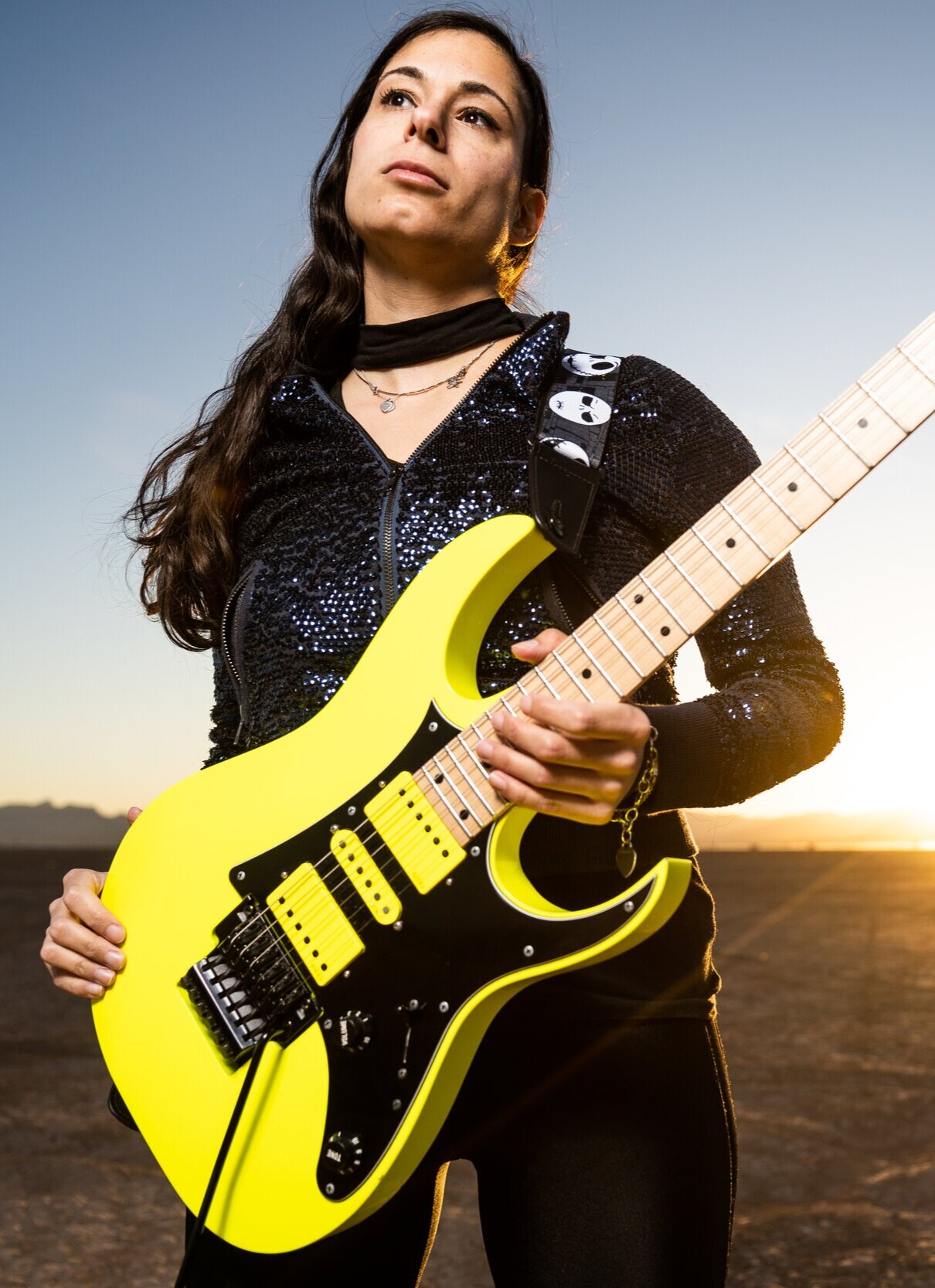Daniele Gottardo's Sublime Guitar
As one of today’s pre-eminent titans of hybridized neoclassical/electric guitar composition and performance, you might assume that Italy’s Daniele Gottardo spent his early years immersed in the works of the great classical composers. You’d be wrong. After picking up the guitar at 14 years old, Gottardo’s first musical obsession was the rock-and-roll majesty that is Kiss.
Gottardo has come a very long way from locking himself in his bedroom, transcribing Kiss guitarist Ace Frehley’s solos by ear. In 2009, the extraordinary fretboard shredder won the award for “Best Technique” at the international Guitar Idol competition, catching the ear (and admiration) of one of the acknowledged guitar heroes of all time, Steve Vai.
The next year, Vai released Gottardo’s debut album, Frenzy of Ecstasy, on his Digital Nations record label, and called the now-exploding talent his “favorite new guitar player.” Others joined the chorus of respect, with Guitar World picking him as one of the top-ten hot guitarists in July 2013; publishers around the globe seeking articles, lessons, and instructional videos; and everyday musicians and music fans pushing his YouTube videos to upwards of hundreds of thousands of views. (His whimsical and technically ferocious take on “The Simpsons Theme” alone has garnered more than 239,000 YouTube views to date.)
Of course, you’d never know any of this if you happened upon Gottardo at your local Whole Foods.
Outwardly unassuming, Gottardo eschews the fashion sizzle often embraced by guitarists who want people to know they are “rock stars.” He is usually a quiet presence—likely due to the fact that he is still developing his facility with the English language—but possesses a wonderful and deadly wit that can catch people off guard and prompt snorts of surprised laughter.
At the root of it all, this is not someone who seeks fame for fame’s sake. Gottardo is an extremely committed student, who would probably hang back at home to deconstruct an Igor Stravinsky piece rather than strut down a music-industry red carpet. Tireless in his pursuit to master stratospheric levels of guitar performance in order to create the music he hears in his head, he never stops practicing, absorbing, and applying new techniques to his already formidable skill set.
This impassioned commitment can make it appear as if Gottardo is like the stereotypical “consumed artist locked away in a garret,” and, in some ways, it’s an accurate portrait. (He has been working feverishly on his next solo album for five years, so there’s that.) But he also loves to cook and adores cats, and he definitely didn’t kick love to the curb to pursue his career. He found a life partner and artistic foil in San Francisco Bay Area guitarist Gretchen Menn, and although their courtship necessitated frequent trips between California and Italy—as well as a few other logistical challenges—the two were married in 2019. If the International Space Station tracks a mystical glow coming from the area of their home, it’s probably because there is only so much talent you can contain under a single roof.
Fine Living Lancaster: Has it been difficult feeling motivated during lockdown?
Daniele Gottardo: Happily, finishing my album has been a source of distraction and deadlines during a time when it’s easy to feel lost or uninspired. Both Gretchen and I were asked to be a part of the Another Night on Earth international guitar ensemble, and that has been an amazing and unexpected adventure. We often feel isolated on our paths as guitarists who are deeply interested in composition, and it’s like we found the rest of our pack. The project has opened up a lot of cool virtual collaborations that keep music feeling alive and vital in my life. I have also been teaching a lot, which is great for my morale.
Have any of the challenges in having to isolate emerged as more difficult than others?
I found that I have more need for social contact than I ever imagined, and I haven’t made my mental health much of a priority. But I have a therapist I love, and a sweet, supportive family—both here and in Italy. Also, cats help most situations.
Can you tell us a bit about your upcoming album?
For the past five years, I have been working on meticulously composed music for chamber orchestra and electric guitar—a natural evolution from my previous album, Non Temperato. I was reaching even further toward abilities I had not yet attained musically. It has been quite a journey—and not always a pleasant one—but I’m finalizing the album now, and I’m very happy with the results. Now, I just need to figure out the best way to release music in the current state of the world and music business. Any ideas?
What type of journey do you want a listener to take when they listen to your compositions?
In general, my compositions evoke feelings, moods, and colors that are surreal or otherworldly. I believe music can celebrate the highest, ineffable aspects of our psychology and spirituality, and I aim to appeal to those tendencies.
What is your compositional process?
I can be very analytical. In the early stages of composing music, I work almost like a scientist and create tables, graphs, and combinations of harmonies and sonic colors. I try to find a basic seed of an idea—something that has potential—and from that seed I visualize the big picture. It’s like seeing a single frame from a film and deducing the complete story forwards and backwards.
Which players and music inspire your compositions?
When it comes to musical inspiration, I always try to be connected to the past, as well as the present. As far as current guitarists go, I have been gravitating toward jazz players, such as Pasquale Grasso, Jonathan Kreisberg, Mike Moreno, Lage Lund, and Kurt Rosenwinkel. Compositionally, I am most influenced by orchestral and chamber music of the baroque, classical, late romantic, and 20th century. Corelli, Liadov, and Stravinsky are long-time inspirations, and, lately, Scriabin, Poulenc, and the French School.
You’ve been name-checked by guitar heroes such as Steve Vai. What is the personal impact when someone such as Vai is a fan of your work?
It’s an honor beyond words. Steve has been not only an enduring artistic inspiration of mine, but also a philosophical one. In a world that glorifies
the exterior, I love that he celebrates a spiritual path in life, and, consequently, in his art. His support of my musical expression has been a beacon in moments of darkness and self-doubt.
The pandemic has seen a massive upswing in guitar sales, and so many players are flooding the web with videos and audio tracks. What do you think all of this emerging guitar content will mean for the future of guitar?
I think it’s great that guitars are selling, and that people are interested in playing. It’s especially cool because, in popular music, the guitar is mostly insignificant. The emergence of guitarists on social media can be very inspiring. The downside is that trends can be extra contagious, with players chasing attention and views, rather than creating something significant. I think we will have a huge number of great players, but they will be overshadowed by the superficiality of modern Internet culture.
Find more at officialdanielegottardo.com
By Michael Molenda






